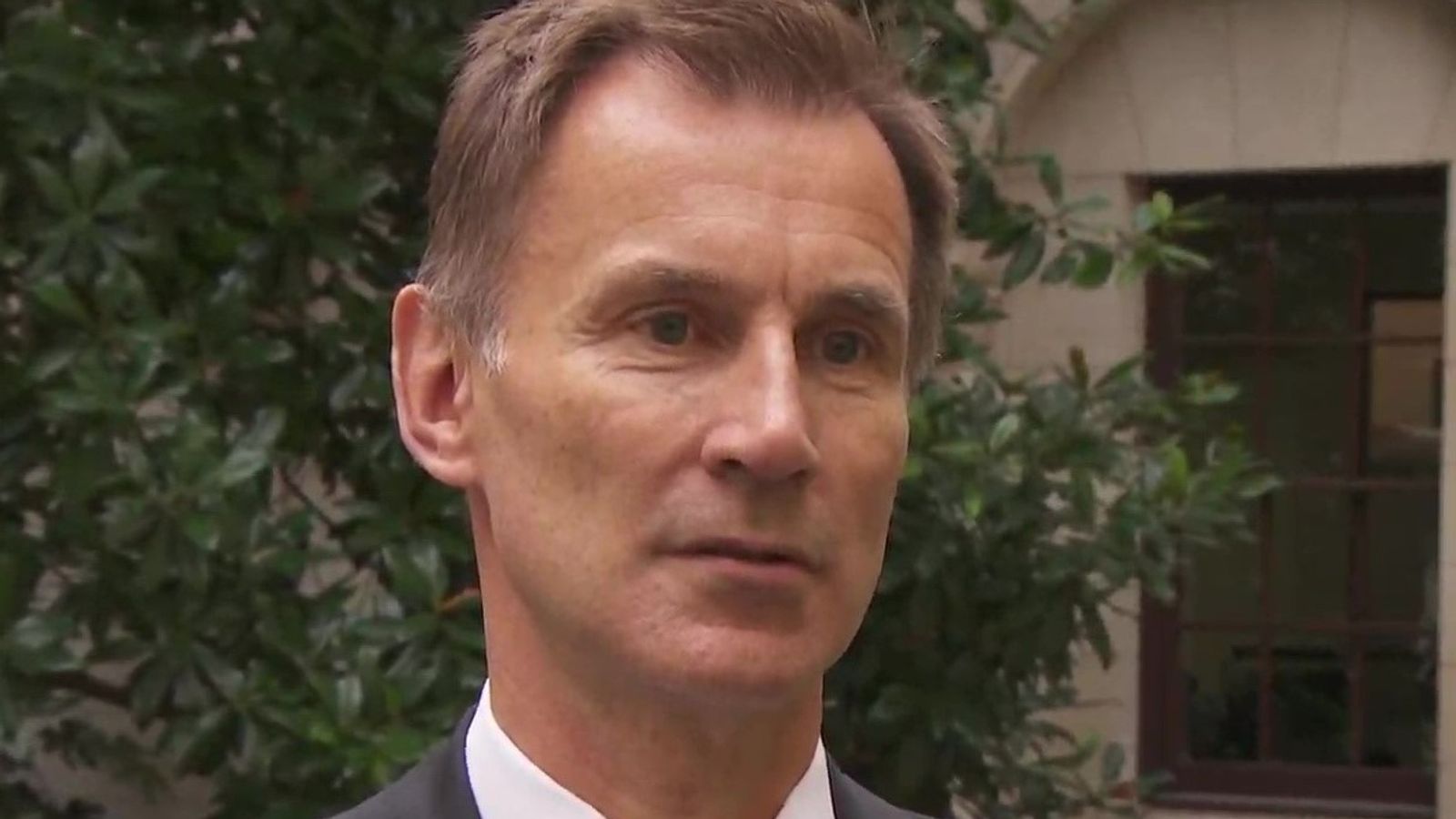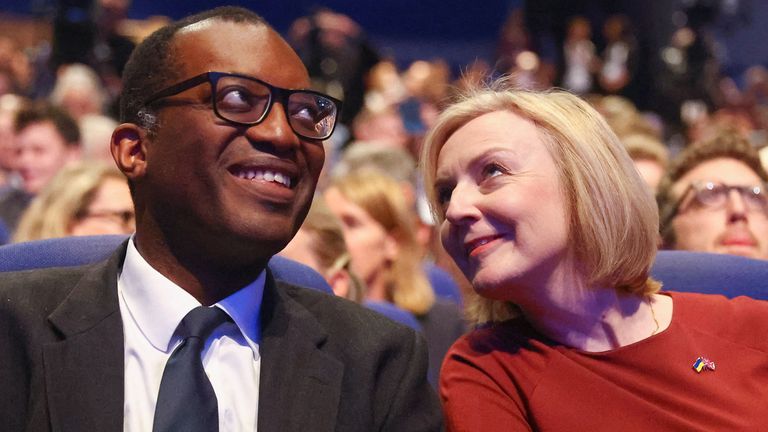Jeremy Hunt delayed announcing the government’s economic plan from Halloween until November 17, saying it would help ministers make “difficult decisions… that stand the test of time”.
The medium-term financial report was due to be announced by the chancellor in the House of Commons on October 31 – along with the Office for Budget Responsibility’s forecast – after Liz Truss’ tax-cutting mini-budget last month left a black hole in public finances and markets in turmoil .
But it will now be delayed by more than two weeks and turned into a full-fledged autumn statement, with expanded powers and longer-term plans.
Mr Hunt, who remains chancellor in Rishi Sunak’s new cabinet, said he had advised the new prime minister to make sure any decisions were based on “accurate economic forecasts”.
And he said he’s “willing to make a choice that’s politically embarrassing if it’s the right thing for the country.”
Policy Updates: The PM prepares for the first PMQs
The chancellor also revealed that the autumn statement would include measures to reduce debt “in the medium term”.
“Our number one priority is economic stability and restoring confidence that the UK is a country that pays its own way,” Mr Hunt said.
“But it is also extremely important that the statement is based on as accurate economic and public finance forecasts as possible.”
The Bank of England is due to announce interest rates on November 3meaning that the government’s initial statement was made before the decision.
Asked whether it would be wise to change that now, Mr Hunt said Mr Sunak’s entry into No 10 meant there was “the prospect of much longer-term stability for the country’s economy – and in that context, a short delay on two and a half weeks is the best way to make sure we’re making the right decisions.”
The chancellor added: “Even in the last 48 hours there has been a lot of market turbulence and the question is how do you deal with that turbulence to make sure that the very, very important, very difficult decisions that I and the Prime Minister are making are the right ones – solutions that stand the test of time and do the right thing for people at home who are worried about their mortgages, jobs, cost of living, bills and more.
“And for this reason, the accuracy of forecasts for both public finances and economic growth is very important, and therefore this is the right and smart decision.”
But Lib Dem MP Sarah Olney said the delay “risks leaving mortgage borrowers, pensioners and struggling families under a damaging cloud of uncertainty”.
She urged the Prime Minister to confirm that benefits and pensions will be increased in line with inflation, and that there will be no cuts to public services, including the NHS.
“Sunak was appointed by Conservative MPs to number 10 without anyone voting for him and without telling anyone about his plans for the country,” she said.
“The public deserve to know immediately what awaits them and that they will not be made to pay for the Conservative Party destroying our economy.”
How did we get here?
Ms. Truss took office in September after a summer campaign for lower taxes and higher growth.
Three weeks into her premiership, her chancellor, Kwasi Kwarteng, announced a raft of tax-cutting policies to be paid for by government borrowing in a mini-budget with no forecast from the OBR.
This spooked the markets, causing the pound to fall, mortgages to be withdrawn and the Bank of England to intervene.
Despite an early reversal on scrapping the 45p tax rate for top earners and the promise of a medium-term financial announcement, markets remained buoyant and the then prime minister sacked her chancellor, hiring Mr Hunt in his place .
Within three days, he reversed almost all policies, but warned that more difficult decisions lay ahead as mistakes by Ms Truss and Mr Quarteng left public finances in an even worse position.
Ms Truss resigned the same week and has now been replaced by Mr Sunak, who promised on the steps of Downing Street that “economic stability and confidence [would be] at the heart of this government’s agenda.”
There were hints that the announcement could be delayed until Wednesday when Foreign Secretary James Cleverley failed to confirm the date to Sky News.
And later this morning a Treasury source told our political editor Beth Rigby that it was “very possible”.
https://news.sky.com/story/jeremy-hunt-delays-economic-statement-due-on-halloween-to-17-november-12730529













